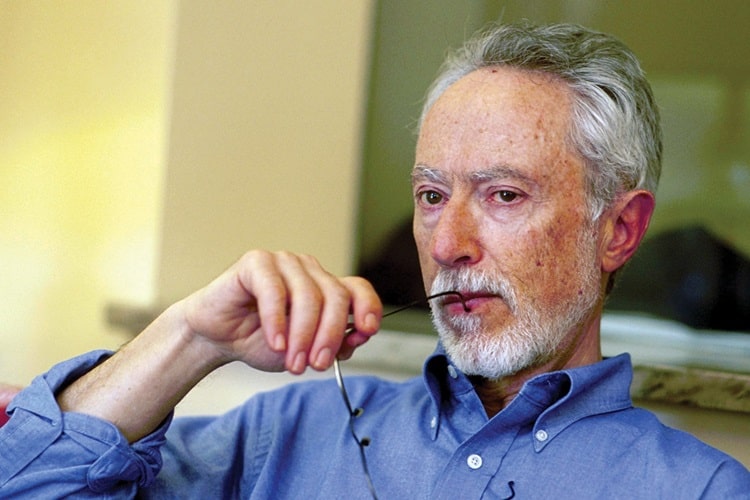Unmasking a Legend: The Story of J. M. Coetzee

J. M. Coetzee is a South African-born novelist, essayist, linguist, and translator. He received the Nobel Prize in Literature.
Life and Career
J. M. Coetzee was born on February 9, 1940, in Cape Town, South Africa. He spent his early years in Cape Town, where he was exposed to the stark realities of apartheid. Coetzee studied at the University of Cape Town and later earned a bachelor’s degree in mathematics and English from the University of Cape Town in 1960.
In 1962, Coetzee left South Africa to pursue a Ph.D. in English at the University of Texas at Austin, where he focused on the works of Samuel Beckett. He subsequently lectured at the State University of New York at Buffalo and the University of Cape Town before relocating to the United States in the early 1970s.
Coetzee’s academic journey was marked by a deep engagement with literature and linguistics. His early academic pursuits in mathematics evolved into a passion for literature, and this transition is reflected in the interdisciplinary nature of his later works. Coetzee’s academic background significantly influenced the intellectual depth and complexity of his novels.
J.M. Coetzee’s literary career spans several decades, during which he produced a body of work that earned him numerous accolades, including the Nobel Prize in Literature in 2003. His early novels, such as “Dusklands” (1974) and “In the Heart of the Country” (1977), gained critical acclaim for their innovative narrative styles and exploration of the psychological and moral implications of colonialism.
One of his most celebrated works is “Waiting for the Barbarians” (1980), a novel that delves into the dehumanizing effects of imperialism. “Life & Times of Michael K” (1983) won the Booker Prize, further establishing Coetzee’s reputation as a masterful storyteller. “Disgrace” (1999) also won the Booker Prize and deals with post-apartheid South Africa, addressing issues of power, race, and personal redemption.
In addition to his novels, Coetzee has written essays, memoirs, and works of literary criticism. He is known for his philosophical reflections on literature, language, and the complexities of human existence.
Award and Legacy
J.M. Coetzee has received numerous awards and honors throughout his career, recognizing his significant contributions to literature. One of the most prestigious accolades he received is the Nobel Prize in Literature, which he was awarded in 2003. The Nobel Committee praised Coetzee for his “innumerable guises in which the distress of today’s world may be reflected.” This recognition solidified his place as a literary heavyweight on the global stage.
In addition to the Nobel Prize, Coetzee has been honored with the Booker Prize twice. The first time was in 1983 for “Life & Times of Michael K,” and the second time in 1999 for “Disgrace.” Winning the Booker Prize is a testament to the esteem in which his work is held within the literary community.
Coetzee’s novels are known for their exploration of complex sociopolitical issues, including apartheid, colonialism, power dynamics, and the human condition. His insightful and often challenging examinations of these themes contribute to ongoing discussions about social justice and ethical responsibility.
Coetzee is admired for his innovative use of narrative techniques and literary forms. His experimentation with perspective, language, and storytelling challenges traditional conventions and engages readers on a deeper intellectual level.
A prominent feature of Coetzee’s writing is its philosophical depth. His works delve into existential questions, morality, and the nature of humanity, inviting readers to contemplate profound and often unsettling aspects of the human experience.
Coetzee’s global recognition, including the Nobel Prize and multiple Booker Prizes, reflects the international impact of his literature. His ability to address universal themes while rooted in the specific context of South Africa has contributed to a broad and diverse readership.
Beyond his novels, Coetzee has written extensively in the realm of literary criticism and essays. His reflections on literature, language, and the role of the writer have become essential reading for those interested in the intersection of literature and philosophy.
Observer Voice is the one stop site for National, International news, Sports, Editor’s Choice, Art/culture contents, Quotes and much more. We also cover historical contents. Historical contents includes World History, Indian History, and what happened today. The website also covers Entertainment across the India and World.

